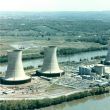Confidence, trust, and balance
By Rajiv Nayan, January 17, 2013
The three essays published in this Roundtable so far have all affirmed the need for responsible control of commerce in nuclear technology and goods. All the authors would like for nuclear commerce to flow smoothly toward countries with new or emerging nuclear power sectors, and all would like to minimize circumstances that impede that flow.
But in the nuclear arena, tragic events can interfere with commerce. After the 1979 accident at Three Mile Island, decades passed before a new nuclear power project gained approval in the United States. And an incident like the 2011 disaster at the Fukushima Daiichi Nuclear Power Station can disrupt nuclear commerce far from where it occurs. Fukushima, for instance, has adversely affected the nuclear energy sector in India, a nation whose highly ambitious program for nuclear energy expansion has faced recent challenges in the form of protests over the planned Kudankulam and Jaitapur facilities.
But nuclear safety is in many ways interconnected with nuclear security and safeguards. Before Fukushima, safety had started to seem less controversial. The accident brought the issue back into focus — just when nuclear security was gaining a higher profile in global politics because of the 2010 Nuclear Security Summit. Thus, at the successor summit in 2012, efforts were made to combine nuclear security and nuclear safety. Safeguards, meanwhile, are always an important issue for nuclear commerce because commerce occurs in an international context characterized by the existence of nuclear weapons. This is no less true in the aftermath of Fukushima, as some countries' plans for expansion of nuclear energy are managing to overcome the challenges posed by the accident.
Points of disagreement. My Roundtable colleagues and I agree on many points, such as that the Nuclear Suppliers Group (NSG) and its guidelines should build confidence not only among supplier nations but among the international community more broadly. Nonetheless — though I sympathize with my colleague Kayhan Barzegar's concerns that NSG policies may result in discrimination — I take issue with some of his statements. In my view, when he says, "If the guidelines of the NSG had been carefully followed … there would have been little room for discriminatory measures … [against] an NPT signatory like Iran," he confuses the functions of the NSG and the Nuclear Non-Proliferation Treaty. Actually, there is limited correlation between the two institutions, but Barzegar seems to believe that Iran's problems vis-à-vis the treaty might somehow be solved through the policies of the NSG.
Nor do I see much room for connecting the 2008 waiver that India received from the group with the NSG's restrictions on trade with Iran. India, though it is a nuclear-armed state outside the treaty, has signed on to a number of important global nonproliferation initiatives and its record on proliferation is considered mostly clean. Iran's proliferation record is mixed, and this is the reason for its current difficulties. Indeed, I would argue that Iran is complicating nuclear trade for other nations — Tehran's nuclear program causes undue suspicion to fall on everyone else.
In his essay, meanwhile, Raymund Jose G. Quilop discusses the misperceptions and mistrust that characterize relations between countries that possess nuclear technology and those that don't. But the real issue is building the entire world's trust in new recipients of nuclear technology. Everyone understands that some possessors of nuclear technology could engage in proliferation, but the risk of proliferation can't be eliminated by restricting nuclear technology to a small number of nations; instead, efforts should be made to ensure that countries in possession of nuclear technology enter the ranks of responsible controllers of technology. As globalization disperses economic activity around the world, energy sources must be dispersed as well, and limiting the number of countries with nuclear power doesn't solve any problems. In fact, it may turn out that demand for nuclear energy will determine how many countries possess nuclear technology and goods, and not the other way around.
New nuclear energy actors must of course work to guarantee that irresponsible non-state actors, especially terrorists, do not get their hands on nuclear technology. I agree with Quilop that significant attention needs to be paid to issues such as re-export and transshipment controls. But in order to ensure that nuclear technology both spreads and is used for responsible ends, the NSG must strike a new and broadly acceptable balance between commercial and security interests. If this is to be achieved, the NSG itself must be restructured.
Topics: Nuclear Energy, Nuclear Weapons
Share: [addthis tool="addthis_inline_share_toolbox"]














